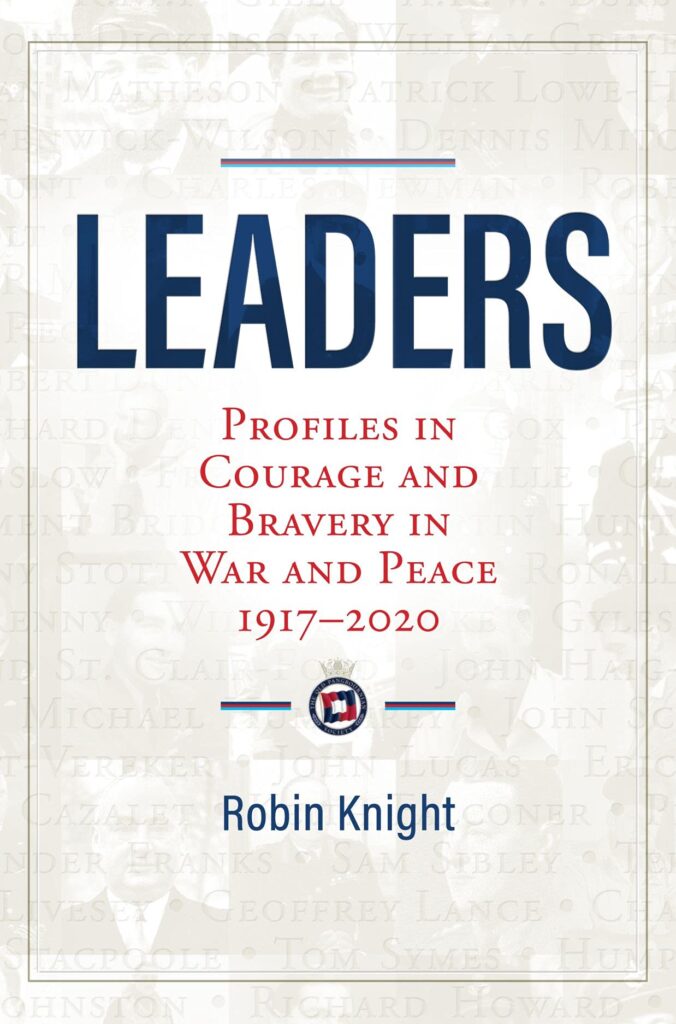Reviewed by Lt Col Geoffrey R. Brasse, U.S. Air Force
Authors frequently engage in military history storytelling through eloquent discussions about battles, outcomes, victories, and defeats. These stories often focus on the personalities of the military leaders, with few details about those participating in the conflict. Former foreign correspondent and corporate writer Robin Knight, in his book Leaders: Profiles in Courage and Bravery in War and Peace 1917-2020, focuses on individual contributions to war history from a single educational source, The Nautical College, Pangbourne in Berkshire County, England. Founded in 1917 to improve cadet training for service in the Merchant Marines, many graduates found themselves as commanders and captains at the outbreak of World War II. Knight asks what motivated this group of students to exhibit significant personal courage and leadership in the face of great risk and why future generations continued to have distinguished careers.
Knight begins by defining courage as choosing to overcome one’s fear. He then highlights the courage exhibited by four Pangbourne graduates and recounts the events of their lives following Pangbourne that led to their recognition and receipt of national honors. In an era of war, with most young men participating in the war effort, these individuals stood apart with honor, humility, a sense of duty, and compassion for their fellow man. Surviving a failed bomb disarming and directing the treatment of the wounded before oneself serve as gritty examples of the successes and failures that highlight each person’s humanity.
Following the opening dialogue, Knight uses skillful writing to coalesce meticulous research from oral history, published and unpublished memoirs, and historical documents into a detailed account of the lives of decorated Pangbourne graduates by service and conflict period, including their accomplishments in sports. The book is organized as groups of standalone stories connected by wars and is not a traditional history novel. The value of Knight’s work is as a reference to the men and women who served behind various military commands or actions, supported by vignettes describing their character and accomplishments. The book is easily searchable to use as a reference with connections to further research opportunities in the bibliography. Compiling the stories, Knight makes the case that these imperfect men forged their values in school, and each faced their fears or challenges head-on. Researchers on British leadership, British private schools, and Allied military war decisions will find this book limited but valuable.
Considering Knight is a Pangbourne alumnus, the book does carry the feel of an alumni written book to promote their alma mater. The book’s organization is closer to an obituary page, highlighting each person’s life without strongly connecting the stories. Organizing the stories by battle, ship, or year may have allowed the reader to appreciate the history and human connections together instead of as stand-alone events. One example is the siege of Malta, referenced several times in different stories without any connection to other school graduates. As his third literary work related to Pangbourne, Knight has substantial documentation and details covering a century of alumni. His love for the school and its history helps the reader feel the character and struggles of many graduates, making it an enjoyable leisure read.
Lt Col Geoffrey R. Brasse, U.S. Air Force, is part of the Military Faculty at Joint Forces Staff College.
Leaders: Profiles in Courage and Bravery in War and Peace 1917-2020. By Robin Knight (UK: Uniform Press, 2021).


